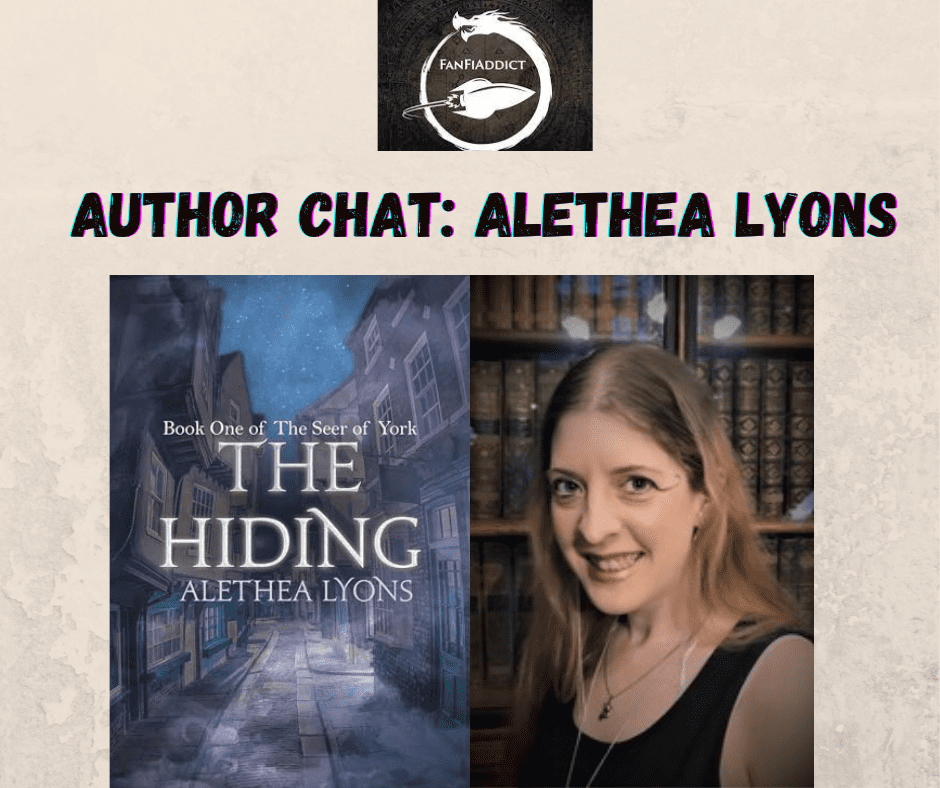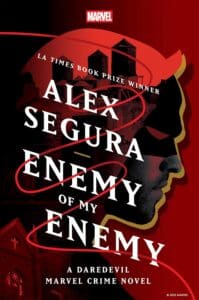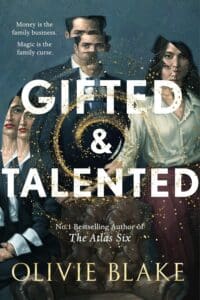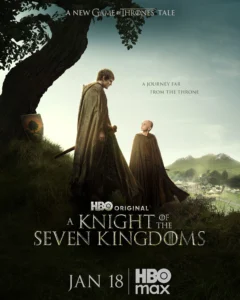
Author bio (in her own words):
Alethea (she/ze) writes various forms of SFF, with a particular love for science-fantasy, dark fantasy, dystopias, and folklore. Many of her works take place at the intersection between technology and magic. She enjoys writing stories with subtle political and philosophical messages, but primarily wants her stories to be great tales with characters readers will love. She also has soft spots for found family, hopeless romances, and non-human characters. Her short stories can be found in a variety of publications and links for these are on her website.
Alethea lives in Manchester, UK with her husband, little Sprite, a cacophony of stringed instruments, and more tea than she can drink in a lifetime.
See the end of the interview for links to buy!
Hi Thea, thanks for chatting! I recently reviewed your new debut novel The Hiding and, once I’d got over my frankly over-emotional reactions to it being set in my favourite city of York, I described it thus: “a horror/mystery/fantasy chimera so drenched in atmosphere and wickedly crafted prose that you’ll need a change of clothes after reading it” and a “masterful debut”. Can you give me a more helpfully concrete plot summary, and tell me who it appeals to?
Wait. I have to have a plot? I can’t just do vibes? Awkward.
Kidding. I promise there is a plot. Magic has been illegal in England for centuries, so when bodies are found with no obvious cause of death and magic runes on them, a witch hunt is on. Harper, an illegal witch herself, is tasked with stopping the murders. But as Harper and her team investigate, they realises there’s more going on than mindless slaughter. Science and magic combined might be enough to stop the killer, but the more she finds out, the less sure Harper is that she should.
Who it appeals to? Well… I guess people who love York are pretty high up the list. Maybe I should start my own ghostwalk of places people die in the book. More generally, anyone who likes dark urban fantasy. If you’re my age and you grew up watching Buffy and Charmed, you should enjoy The Hiding.
I don’t know your age but I definitely grew up watching Buffy and Charmed so I guess I do know your age. Anyway, we have to start with York. I love York – I may have mentioned this before, it’s hard to recall – but why did you set it in this city ripped from the past, and what is your own connections to the cobbled streets The Hiding takes place on?
You know, I think I did hear a rumour you’re fond of York.
As I’m a northerner, the series had to be set somewhere up here (which also makes it easier to visit). Lincoln was a strong contender, as well as a couple of other places, but only York has both the political and religious history to pack the punch I needed. As the series progresses, we’ll see more of that historic split and I don’t promise that there won’t be another Pilgrimage of Grace type clash. Of course, my personal fondness for the city also tipped the scales.
I grew up just south of the River Humber and the vast majority of our holidays were in Yorkshire, whether up the coast to somewhere like Scarborough, or our annual trip to the Yorkshire Dales when I was a teenager. Plus lots of day trips (yes, we do go to the Dales just for an ice cream cone). York is a city I’ve been familiar with for as long as I remember and it’s a place I really feel at home. It helps that it’s easy to get to on the train from where I live, too.
There is a curious sense of cross-over in this novel. On the one hand, it has strong magic fantasy vibes reminiscient of V E Schwab’s debut, A Darker Shade of Magic; on the other, it has deep and chilling Guillermo Del Toro-esque horror qualities (also, there should be a trigger warning for those bothered by tongue mutilation, just saying). Did you intentionally write such an intriguing genre mash, and why do you think horror elements work so well with fantasy?
For me, the trigger warning murder is the eyeballs! Each to their own squeamishness.
There was always an element of mashup as I wanted the book to be dark. Guillermo Del Toro is an influence on that, and even more so on some other stuff I’ve written, because I adore his folkloric dark fantasy aesthetics. So excuse me while I blush a lot because that’s an incredible complement.
For me, horror and fantasy work well because we have a deep, historic fear of things we don’t understand and a need to blame terrible things on someone… or something. While there are benevolent supernatural creatures in folklore, they seem to be far outweighed by ambivalent or malevolent ones. Arguably, fantasy is the setting and characters – there’s magic, fae, witchcraft, etc… – but horror is the actions – murder, mutilation, disappearances.
The horror elements in The Hiding became a lot more prominent after I joined a writing group (which is something I highly recommend – writing groups, not necessarily adding more horror). Four of the other five authors in it write primary horror, so their beta reading feedback definitely pushed things darker. I was reading a lot of their work as well, so that was another influence. Honestly, I usually avoid horror as I’m a complete wuss. My mom finds that hard to believe having read my writing.
My jaw has also dropped after the claim you usually avoid horror. I am jawless. Moving swiftly on… one of your characters is a forensic supernaturalist – in other words, they use science to try and see and manipulate and track magic, which is a fantastic cross-over of crime and magic I’m surprised I don’t see more often. Where did that idea come from?
I’ve always been intrigued by the crossover between magic and science. What if fae folk didn’t flee from iron and only wanted us to think they had? What if they used it, added magic, and were actually far more advanced than humans and adept at hiding? If that’s the case, there must be ways that science and magic interact. Magic changes the universe, so there should theoretically be some trace evidence of that left behind. I may also have watched way too many crime dramas like CSI and NCIS. I would love to put Saqib and Abby in a lab together, they would be an amazing combo.
In terms of the themes of this book, I was struck by this sense of the outsiders, or the other and how they’re mistreated, as represented by the supernatural creatures barred from the human world, which is contrasted with the sense of togetherness fostered by the multi-faith supernatural investigation team. Was this on purpose, and what other themes did you want to explore with The Hiding?
Very much on purpose. While I write primarily to tell a good story, I do like there to be a bit of a message in my books. In this case, an anti-Brexit, pro-refugee and immigration stance. The England in The Hiding is an extreme of the isolationism we’re on the path of now, where we forbid entry to people who need our help or who have skills that would help us. Even people who were born here, like many of the supernaturals in The Hiding, are forced to hide their identities because they’re perceived as ‘outsiders’. In contrast, the core team show that our differences are an asset and should be celebrated and enjoyed.
On a personal level, I’ve spent a large portion of my life feeling like I was on the outside looking in, unable to be myself and fit in with society around me. Particularly as a teenager when most of my classmates were completely alien to me. It took me a long time to find my people, so there’s an element of that in the book as well.
The other main theme is family. I didn’t realise until about a year ago, but every single novel I’ve written has a found family relationship in it. And that was before I adopted my son! I wanted The Hiding to focus on strong platonic and familial bonds rather than having a romantic subplot. Harper, the main character, and her foster-sister Grace are sisters in all but DNA. As the book, and the series, progresses, other people become part of that family.
I started visualising Vin Diesel shouting “Family” in my head at the end there, I’m a bad person, sorry.
I hear tell that on the platform formerly known as Twitter you run a weekly thing where characters from your books are asked questions and you respond (that’s an inelegant summary, but there you have it). So answer the following question in the voice of one of your characters please (yes, I’m really asking this): If you had to kill someone, who it would it be and how would you do it?
It’s me and a friend who generally post the questions. We love interacting with new characters if anyone wants to join. It usually ends up being a conversation, so let’s ask Harper and Grace.
Harper: Define ‘had to’. Is this someone who’s trying to kill me and is coming at me with a weapon? Or a general ‘kill three people by midnight or the world will end’ type deal? Or–
Grace: Not an academic thesis, Harp. It’s easy. Anyone who tries to harm me or family. If I can’t safely subdue them, I have these knives for a reason.
Harper: Gray! That is not why you have those knives. Anyway, you would subdue them. You have never failed at cowing any human attacker into quivering submission.
Grace: But the supes who were feral and couldn’t be contained, the ones who would’ve shredded us if given an inch, they don’t give me a choice. I always pick your life over theirs. As to the ‘how’, that’s as quickly and as painlessly as possible. It’s sometimes necessary to put an animal down, but that doesn’t mean it should suffer. Never had to off a sentient, thank God, but the same rules would apply.
Harper: I promise my sister is a nice person. She’s actually a vet and does everything she can not to have to put animals down. She thinks we won’t do well in the demonhunting business if I say stuff like that though.
Grace: You do realise this is a business interview not a philosophy class, don’t you? It’s like you don’t even care about our image.
Harper: Fine. Purely theoretically, I’d kill someone for you, probably with this big machete at my waist because it’s the nearest thing to hand. That or smacking them on the head with a really big book.
That question went better than I possibly could have hoped to be honest. You’ve written before of your strong love of libraries, and this is certainly reflected in the supernatural libraries and very dangerous books they contain in The Hiding. You’ve also written of your love for The John Rylands library in Manchester. Is this where your library love comes from?
More the other way around. The John Rylands was actually one of the reasons I moved to Manchester. I spent several weeks looking for the amazing library in the brochures only to find out it was closed for three years for renovations. So disappointed! But it was worth the wait.
The library where I grew up was fairly ordinary inside, although the outside had several larger-than-life statues of corpses. Honest! It’s so weird. Other than that, the building was a big block. I was there most weekends, especially once I was old enough to walk there myself, either to get out new books or do research. There’s something thrilling about being in a place where you can discover pretty much anything. If it happens to be in an atmospheric Gothic building, even better. We visited a lot of churches and libraries on our holidays.
Tell us about your publishing history… was it a long slog to getting your debut published or a charmed life? I’ve yet to come across the latter but there’s always a first time I suppose.
Definitely the long slog and still slogging. I queried another book before The Hiding, which I shelved when The Hiding was ready to go. Got a lot of form rejections, but then one revise and resubmit request and one personalised rejection. Both were for fairly minor changes (I switched around chapters 1 & 2 and included a bit more detail in a couple of places). After I made those changes, I got a few more requests, particularly from some indy presses. If you’re querying and reading this, don’t be disheartened. It was still a lot of rejections!
While querying The Hiding, I also started submitting short stories and got a small handful of acceptances on those (along with lots of rejections). It gave me something to put in the bio part of my query letter and it was a great boost to see something I’d written in print.
I got an offer from a local small press, and when I nudged that prompted two other indy offers. I will say that I wish I’d taken more than the ‘standard’ two weeks and been more explicit in my nudges. I got a lot of rejections that were ‘congrats on getting rep, I’m sorry I don’t have time to read your submission’ so part of me always wonders. That being said, I have a pretty book on a shelf, so I’m happy.
Your publisher, the well-regarded Brigid’s Gate Press, is an independent press. How has your experience been as an indy press author – what have been the joys but the challenges?
It’s validating that someone not only enjoys what you wrote well enough that they want to read it, but that they have enough confidence other people will like it to put money into it. It puts your story out into the world.
I’ve seen a number of debates on indy press vs self publishing, and I think the answer really is that it has to be what suits you. You lose some control with an indy press, although I’ve had input on things like editing and cover design. If it’s not already in your contract, it’s certainly something you can negotiate. For me, there was a clear incentive to go indy because there’s no cost up front and the previously mentioned validation.
The challenges seem to be similar to those of friends who are agented and with much bigger publishers. Publishers’ time and marketing is limited, so you do have to manage your own business to a certain extent, doing marketing and chasing things. But like I said, that’s not unique to the indy world, but is a reason some people prefer self-pub.
I’ve learnt a lot about the ‘behind the scenes’ of publishing by going through this process, so it’s been good to have partners who have done it many times.
What one piece of advice would you give to debut authors engaging in the majestic struggle of being published for the first time?
Find writing friends and beta readers. It’s a hard enough industry as it is, having support and feedback is invaluable. Not only does beta reading and having other people read your stuff make for better writing, it means you have someone else saying you’re not rubbish, even when all the rejections make you feel like you are. Those rejections can be for so many things outside your control.
What does the future hold for you and The Hiding – I hear more is coming soon? What about other non-Hiding titles?
Definitely more coming from Harper and the gang! There’s a short story collection in September that takes place right after The Hiding, then book two is coming out next March. That’s what I’m working on right now.
I’m querying a cyberfae novel with folk music influences (yes, I do like cross-genre), so the publication slog continues on that front. I also have a short story of North Sea eco-rage coming out soon.
Thanks Thea!
See here for all the links to buy The Hiding
Bonus content for The Hiding & other works can be found on her website here
See here for Alethea’s socials




Leave a Reply